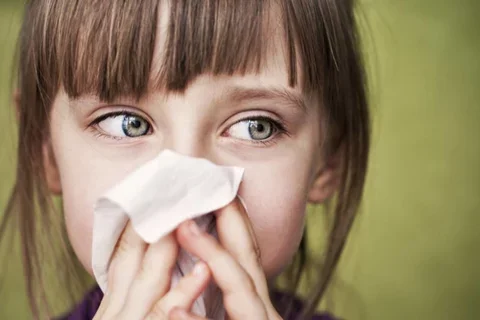Is it allergies or COVID-19? Symptoms can be similar

A runny nose this time of year – during the pandemic – can be unsettling
These days, a runny nose or a tickle in your throat could signal that you’ve come down with COVID-19.
But those symptoms could also be caused by seasonal allergies.
Allergies and COVID-19 share some symptoms, but there are significant differences between the two.
Allergies affect almost half the population, says Maria Garcia-Lloret, MD, a pediatric allergist-immunologist at UCLA Health. The peak season for symptoms is from January to May.
Though allergies and COVID-19 share a few symptoms, including congestion, there are significant differences between these conditions and how they show up in individuals.
Identifying allergy symptoms
Seasonal allergies are caused by tree pollen, grasses and molds. Symptoms include:
- Sneezing
- Runny nose
- Stuffy nose
- Itchy, watery eyes
- Itchy throat
Seasonal allergies are predictable this time of year and can trigger these symptoms for months, says Manish Butte, MD, PhD, chief of immunology, allergy and rheumatology at the David Geffen School of Medicine at UCLA.
“That triggering leads to a chronic set of symptoms,” Dr. Butte says, adding that he personally experiences seasonal allergies in the springtime and typically uses nasal sprays and over-the-counter allergy medicines from February to May.
“A lot of people are like that,” he says. “They know what seasons things are going to be triggering their symptoms, and those seasons are two, three months long.”
Differentiating symptoms of COVID-19
Dr. Maria Garcia-Lloret
COVID-19 is a respiratory infection caused by the SARS-CoV-2 virus, which is transmitted between people. Symptoms can include:
- Cough
- Sore throat
- Fever
- Congestion
- Fatigue
- Shortness of breath
These symptoms typically develop within a few days of exposure, Dr. Butte says, and most people clear the virus in about 10 days.
Dr. Manish Butte
“That’s very different than allergies,” he says. “The tempo with allergies is much longer.”
Symptoms that arise after being with other people or in public places and dissipate a week or so later are more likely to be from COVID-19 than from allergies. Certain symptoms, such as fever or shortness of breath, are associated with COVID-19 rather than allergies, Dr. Butte says.
Responding to symptoms appropriately
Heightened fears about COVID-19 have led to children being kept home from school with allergy symptoms, says Dr. Garcia-Lloret.
She urges parents not to panic when children present with frequent sneezing and a runny nose, especially after exposure to common allergens such as animal dander, dust mites or pollen. With allergies, she says, over-the-counter antihistamines usually relieve symptoms. If kids feel very sick and have flu-like symptoms, a COVID-19 test may be in order, she says.
“People should have, perhaps in the back of their mind, the reassurance that with allergies, the presenting symptoms are very different,” Dr. Garcia-Lloret says.
Contact your primary care physician if you have any concerns.



